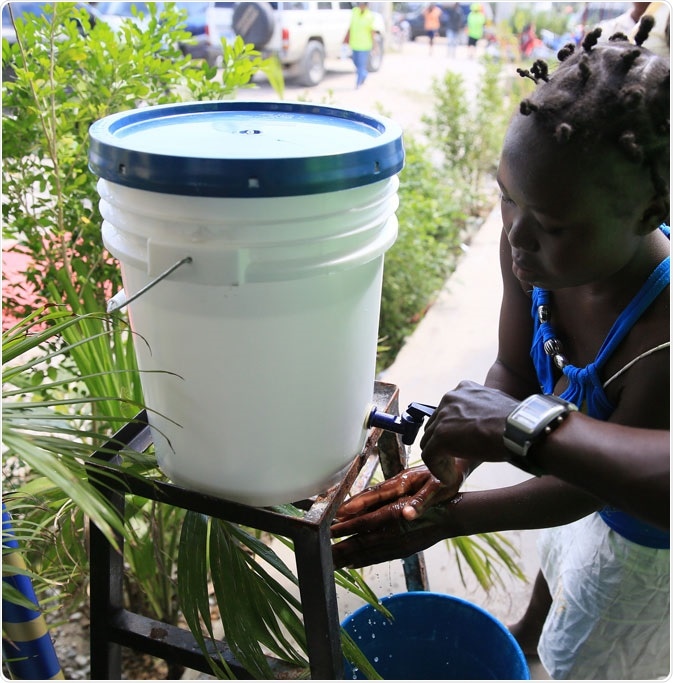The General Assembly at the United Nations met and adopted a resolution yesterday to transfer a substantial amount of unused aid to Haiti to help it combat the cholera outbreak.

Hand washing is a key step in preventing cholera and other diarrheal diseases after Hurricane Mathew in Haiti. Photo: PAHO
The UN chief and the members have thus agreed to ask the member states to wave off a return of $40.5 million and transfer it to Haiti that is presently gripped with a cholera outbreak so severe that over 800,000 people have been affected. The cholera outbreak has till date killed over 9000 persons there.
The UN said that it has a “moral responsibility” to help those affected by the cholera epidemic and to provide support to the country fighting this monster. The earlier Secretary-General Ban Ki-Moon had apologized last December for not doing enough to help stop the spread of the disease. The new Secretary-General Antonio Guterres has provided a new approach to containing this epidemic which includes overall development of health and sanitation.
Cholera is a bacterial disease leading to intense vomiting and diarrhea that lead to rapid development of dehydration. This dehydration if not corrected, can lead to serious consequences and death especially among children and the elderly. The disease is highly contagious and spread though contaminated hands and contaminated water. One of the first steps to stopping spread of cholera is to ensure clean drinking water and improved sanitation. Secretary-General Antonio Guterres has focused on improvement of drinking water provision, sanitation and improved access to care and treatment. These measures could be more effecting if stopping the epidemic that just providing the country with medications and supplies to treat cholera.
Until late May this year only $2.67 million was gathered by the UN from the member states as aid to Haiti. The UN had hoped to collect $400 million in funds for the country. Guterres, for the funds has asked the U.N. peacekeeping mission in Haiti to give away its $40.5 million unspent funds for cholera prevention and control. The peace keeping mission was voted unanimously to end in mid-October after 13 years by the Security Council. This voting took place in April. The peacekeeping mission was termed UN Stabilization Mission in Haiti, known by its French acronym, MINUSTAH. Guterres has asked the members to waive the return of this money so that it could be put to use in the cholera trust fund. More money is being raised from the member states.
According to Jamaican Ambassador Couernay Rattray, who first talked about this resolution at the 193-member General Assembly of the United Nations, the crisis began and was sustained by “inactions” on the part of the United Nations and could not be ignored any more. He called this a “stain” in the name of the United Nations and called for action. The General Assembly after passing this resolution asked for intense cholera monitoring and follow up. They asked for a higher scale of international and regional cooperation and technical assistance in order to improve the surveillance and maintenance of care. Bilateral North-South, South-South and triangular cooperation was also asked for. The General Assembly also lauded the idea that the Secretary General would invite the UN Member States to give up the pending balance from the MINUSTAH.
Source: http://www.un.org/apps/news/story.asp?NewsID=57175